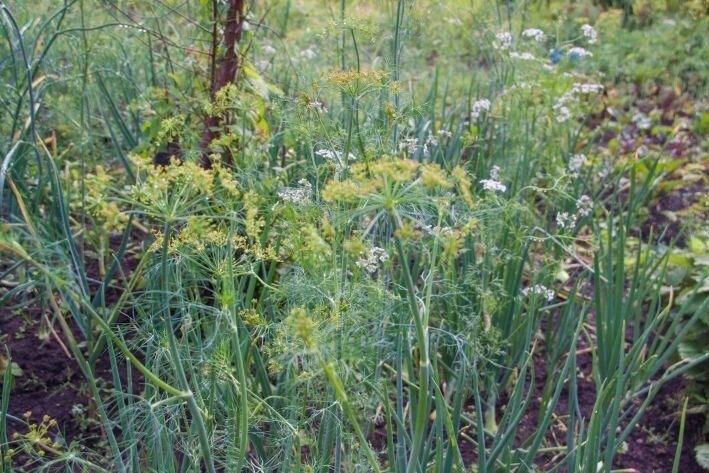What plants do not like the neighborhood with dill: tips for experienced gardeners
Dill, loved by many gardeners for its aroma and taste, is not always a good neighbor in the garden.
Some plants may suffer from its presence, which is important to consider when planning plantings.
Anastasia Kovrizhnykh, an expert of the online publication "BelNovosti", an agronomist and landscape designer, reminded summer residents of the most important thing.
Dill and its effect on neighboring plants
Dill, as one of the popular herbs, has its own characteristics that affect the growth and development of other crops.
Its strong aroma and active substances can both repel pests and negatively affect the growth of some plants. Knowing about such features, you can avoid mistakes when planning beds and create favorable conditions for all crops.

Plants that don't get along well with dill
One of the plants that it is absolutely not recommended to plant next to dill is carrots.
Although dill is sometimes planted together with carrots to improve the taste of the latter, their proximity can lead to delayed growth of carrots and a decrease in their yield. Dill essential oils affect carrots by suppressing their root system.
Also, dill should not be planted next to celery. Celery is very sensitive to the active substances of dill, which can cause inhibition of its growth and development of diseases.
Vegetables that dill interferes with
Other plants, such as cucumbers, tomatoes and beans, may also experience discomfort when growing next to dill.
Dill slows their growth, especially in the early stages, which can affect the development of the fruit. Although cucumbers are often grown in the shade of dill to protect them from the heat, their yield can be reduced if there is too much dill in the bed.
